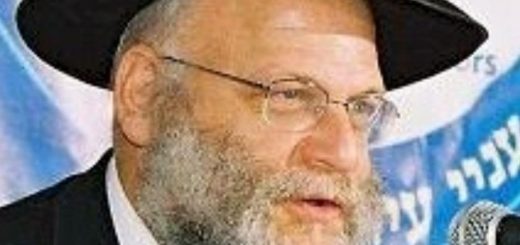Who wrote the Torah?

A few days ago Yaakov Menken wrote about the Documentary Hypothesis, and I meant to get back to that. Several of the comments on his posts seemed to assume that if any mistakes or differences crept into our Torah scrolls over the years, then 1) the eighth Ani Ma’amin is not true (“The Torah we have is the one G-d gave Moshe on Sinai”) and therefore 2) the Documentary Hypothesis is true or at least remains on the table.
I won’t go into all the unwarranted leaps of logic here but do want to make a couple of remarks.
The Documentary Theory has nothing to do with the question of whether slight differences and inaccuracies crept in over the years. It is a theory that the Torah was not given to Moshe by G-d but was written by a variety of human authors over a period of time, and later all those variations were (clumsily) folded into one by a hypothetical Redactor.
R’ Menken’s statement that “as soon as one says that even a single word doesn’t come from G-d it is no longer a Torah philosophy” clearly is not referring to scribal errors that have crept in over time, but to the theory that the Torah was not written by G-d.
If you say that some unknown author wrote part of the Torah — even one word — you are making a statement that does not accord with the Orthodox mesorah.
That Yehoshua may have written the last few verses — as one comment mentioned — has nothing to do with the R and C and Wellhausen theories of human authorship of the Torah. It is well within our mesorah to say that there is one opinion that Yehoshua wrote the last few verses. (The other opinion is that Moshe Rabeinu wrote those verses, at Hashem’s dictation, while weeping over the verses describing his own death.) Even according to the opinion that Yehoshua wrote the last few verses, it was with Hashem’s imprimatur, and again, has nothing to do with the theory of human (as opposed to Divine) authorship of the Torah.
The Ani Ma’amin dealing with this — “this Torah is the same one given to Moshe” — likewise is not meant to refute those who say errors may have crept in. Rather, it is meant to refute those who say the Torah was written by humans and not by G-d. You see, even in Rambam’s time, there were those who rejected the original mesorah and denied the Divine authorship of the Torah. Wellhausen was not nearly as original as he thought. The statement “every word was written by G-d” is not a statement affirming human inerrancy, but a statement affirming the Divine authorship of the Torah.
This is the dividing line between Orthodoxy and every non-Torah movement: not the question of whether errors have crept in (all very minor, of course) but the question of Who wrote the Torah in the first place. We need to keep our eye on the ball here and not get distracted by minor side issues.
There is no document in history that has been transmitted through so many centuries, in so many different countries, with so few changes, as our Torah. While this does not “prove” the Divine authorship of the Torah, it does strongly support R’ Menken’s contention that it would have been very difficult for a human to have written the Torah and then to have presented it to the entire Jewish people as the word of G-d without the people demurring.




>There is no document in history that has been transmitted through so many centuries, in so many different countries, with so few changes, as our Torah. While this does not “prove” the Divine authorship of the Torah, it does strongly support R’ Menken’s contention that it would have been very difficult for a human to have written the Torah and then to have presented it to the entire Jewish people as the word of G-d without the people demurring.
What bearing does the history of the Torah following the many centuries of exile have on its origin before the exile, if you’re going to present a many countries, many centuries, so few changes argument?
And yet the Tanach itself says that that is exactly what happened: A Torah scroll (or perhaps just Devarim) was discovered in the Mikdash. No one, at least outside of Kohanim and Neviim, knew what it was. It was presented to the people and accepted. A similar thing happened in the days of Ezra, this time with the whole Torah.
Closer to our own time, we’ve seen the same thing happen with the Zohar. And, l’havdil, this is how Christianity, Islam, and Mormonism all got started.
I’m not saying the Documentary Hypothosis is true. (Although one note: Your use of the word “clumsily” is on target. If there was a Redactor, he did masterful work.) But the argument of “it couldn’t have happened that way” doesn’t accord with what we know.
“If you say that some unknown author wrote part of the Torah—even one word—you are making a statement that does not accord with the Orthodox mesorah.”
Define “Orthodox mesorah.” The Gemara says this about Ezra, especially about words with dots.
S asks:
It suggests that already when they went into exile, the Jews had a tradition of copying Torah scrolls as exactly as possible.
Nachum Lamm writes:
If no one knew what it was, how was it that the whole people accepted what purported to be a book of their own history? Wouldn’t they say, “Hey, this is nothing like what my grandparents remembered”? The Torah is the only Revelation which makes the claim that it was given to an entire people — that they were all at Sinai.
As for Jesus, Mohammed and other founders of new religions — each claims that G-d spoke to HIM alone, not to a whole people. If you find that person charismatic and convincing, then you might believe him. But if he says “G-d spoke to YOUR grandparents” you would say, “Funny they never mentioned it.”
There is a big difference between someone saying “G-d spoke to me” and someone saying “G-d spoke to your grandparents, to the entire nation, and they all heard Him.” The latter claim would not be so readily accepted de novo by an entire nation that had no such national memory.
Nachum Lamm wrote further:
You seem to be contradicting yourself from one sentence to the next. If the Redactor pasted together various documents “clumsily”, then he did not do “masterful” work.
My argument against the Documentary Hypothesis is that their supposed Redactor would have had to be a very clumsy editor, to retain different versions of the same event instead of choosing the better version (eg., two accounts of Creation in the first two chapters of the Torah — well explained by Rashi of course).
No modern editor would do such a clumsy job of reconciling first and second drafts of a manuscript, making sure names are spelled consistently and so on. I don’t think the Redactor did a masterful job, I think he did a bumbling job, and that very fact argues against there ever having been such a thing as “the Redactor.”
The Documentary Thesis assumes — as do many non-Jews who are not familiar with classic Jewish sources — that no one ever noticed repetitions and inconsistencies in the Torah before brilliant modern critics came along. A look at Rashi — who quotes the Talmud frequently — would quickly disabuse them of this notion.
Finally, NL says
I try not to get drawn into nit-picking arguments that depend on exact definitions of words that in reality everyone understands perfectly well. We Jews have been learning Ezra and Tanach and Gemara for centuries and we understand what we mean when we say “G-d wrote the Torah. That is our mesorah.”
You are welcome to peruse our own documents for internal evidence that we did not always accept the truth of our own documents, but I have no patience for such debate, sorry.
Toby, you misunderstand me. The Torah happens to be woven together so beautifully that *if* there was a Redactor, he did not do a clumsy job, but a masterful one. There are many examples of places where sections flow into each other, build on each other, and the like. Nechama Leibowitz did much work on this, as do many modern Bible scholars. (Not all of them, by the way, necessarily religious or believing in Sinai.)
Of course, it’s that much simpler to then say that there was no Redactor- that the text was simply written as one piece, by Moshe, over 3000 years ago. After that, we’re left to quibble over words, letters, and proofs.
Despite the many excellent comments back and forth on this topic, there is one point that has not yet been made: the Documentary Hypothesis – and Biblical criticism in general – BEGIN with the assumption that the Torah is a human work. They never entertain the question, “What evidence is there that God wrote the Torah?” It’s never discussed. Based on their starting assumption, the DH is not at all a bad attempt at answering the question (that they are asking).
In contrast, if one begins with the assumption that the Torah is not a forgery, that in fact Moses did transcribe the word of God, then (scribal error asside) the textual contradictions and stylistic changes all point to the same question: Why did God write it this way?
>Despite the many excellent comments back and forth on this topic, there is one point that has not yet been made: the Documentary Hypothesis – and Biblical criticism in general – BEGIN with the assumption that the Torah is a human work. They never entertain the question, “What evidence is there that God wrote the Torah?” It’s never discussed. Based on their starting assumption, the DH is not at all a bad attempt at answering the question (that they are asking).
Correct, but isn’t that a reasonable way for, certainly non-Jews for whom the Torah is not their morasha, to approach the text? I bet that is exactly how you approach the Qur’an, as a non-divine text, without ever enetertaining the question of whether Al-lah authored it.
At the very least, this realization should give us pause in considering what source-critical scholars are doing.